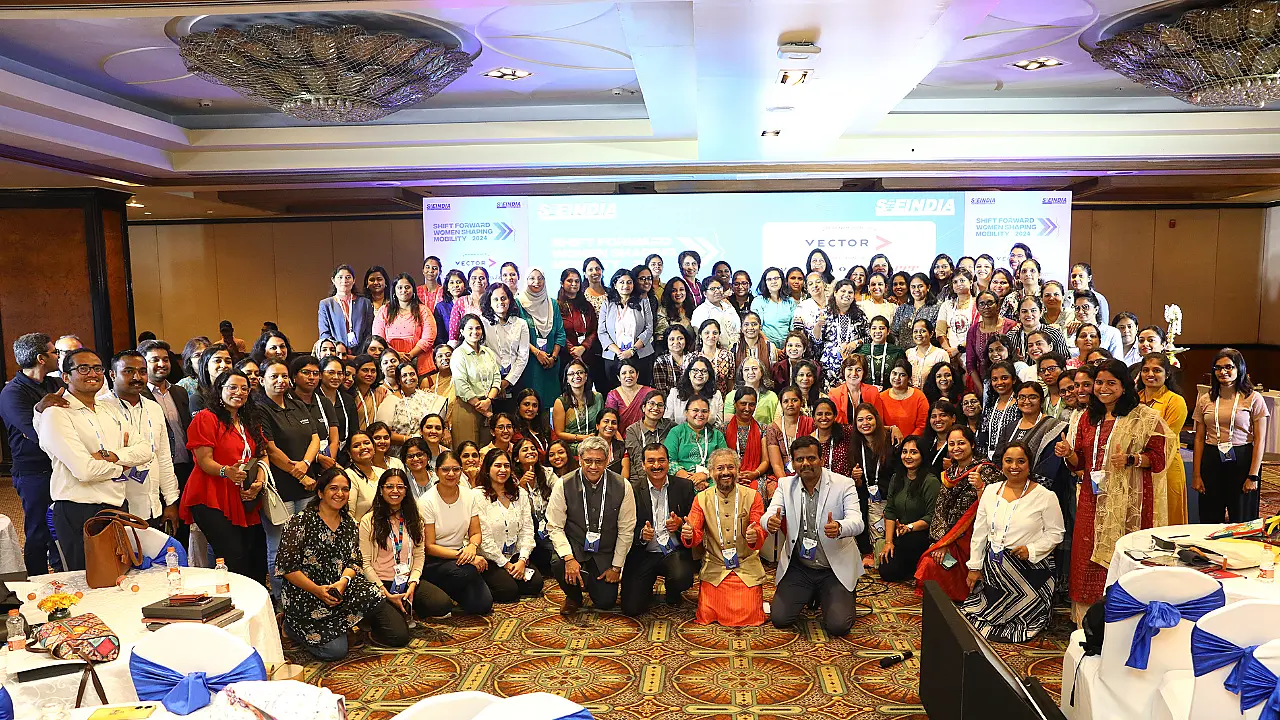
In the vast realm of space exploration, every mission is a testament to human ingenuity and collaboration, as it is a field where multidisciplinary knowledge converges, involving a plethora of subsystems and engineering disciplines, Nigar Shaji, Project Director Aditya Mission, ISRO, has said.
Participating in a Fireside Chat with Rakhi Agarwal, Manager of Project Management at Alstom, at the conference on 'The Shift Forward—Women Shaping Mobility,' organised by SAE India Bengaluru Section, Shaji said each component is a vital piece of a complex puzzle requiring a deep understanding of system engineering. Her career epitomises the essence of leadership and innovation in the space industry, as she honed her skills, mastering various engineering domains and developing a keen system engineering acumen.
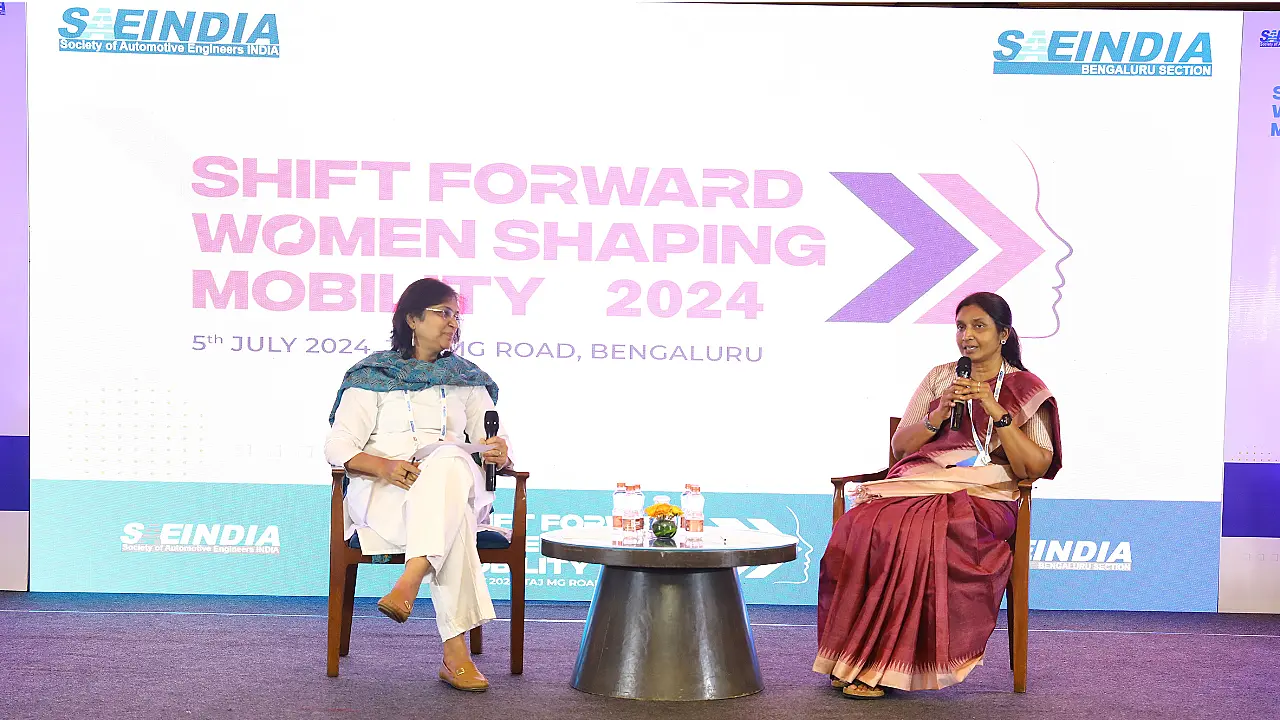
When she was made the Project Director of Aditya Mission by ISRO, she felt it was not just an assignment but a chance to make history. She noted that the challenge was immense, but so was the potential for achievement. She quickly realised that technical prowess alone would not suffice as the project demanded impeccable decision-making skills and adept people management. Every decision must be meticulously calculated, as even the slightest error could lead to significant setbacks. Her decisions were based on a thorough understanding of the entire system, ensuring that each choice was well-informed and strategically sound.
According to Shaji, balancing different perspectives and getting the work done efficiently required exceptional people management skills. It was necessary to bridge the gap between different working styles and mindsets, fostering a collaborative environment that was crucial for the mission's success. Reflecting on her journey, she considered these two aspects—decision-making and people management—the most demanding yet rewarding parts of her career.
Inclusivity In Driving Innovation
Delivering the inaugural address at the conference, Latha Chembrakalam, VP and Head of Technical Centre India, Continental Automotive, said technology has become gender neutral, and that's why women involved in technology are driving innovation; therefore, women can also bring more inclusivity in innovation.
In the past, manufacturing and tech industries were not very gender-neutral, leading to significant disadvantages for women. Today, however, technology is much more inclusive, allowing women to drive innovation. A key example from the automotive industry highlights this shift: previously, crash test dummies were modelled exclusively on men, assuming all drivers and passengers were male. This oversight led to severe injuries among pregnant women, children, and the elderly. Now, the industry includes diverse perspectives, leading to safer designs for everyone.
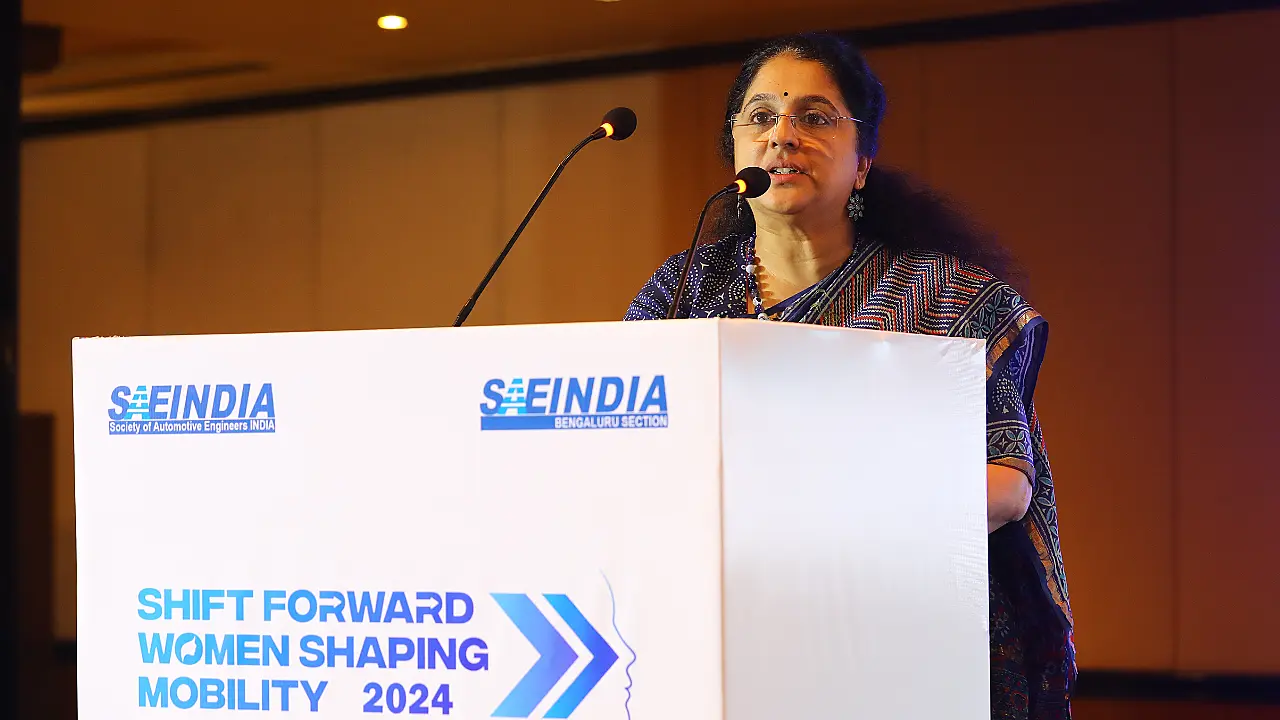
Similarly, in healthcare, assistive services often fail to consider the unique requirements of women. Without inclusive thinking, innovation falls short, Chembrakalam said. Diversity of thought is crucial in product development, ensuring that technology meets the needs of all users. From a Tier-1 standpoint, integrating inclusivity with OEMs and end customers in mind, changes the approach to innovation, where women play a vital role. Diverse viewpoints are essential in creating differentiated and effective technology, she said.
According to her, AI and data are pivotal in today's rapidly evolving tech landscape. Continuous learning is necessary as technology changes swiftly. What was once sufficient knowledge quickly becomes outdated, emphasising the need for upskilling, reskilling, and sometimes even deskilling. The younger generation must be particularly proactive in this regard, she reiterated. The mobility industry exemplifies this transformation. For instance, by 2030, mid-sized cars will see code lines increase from 100 million to 300 million. With advancements like GenAI and data integration, staying updated is crucial. 'Without continuous learning and adaptation, we risk falling behind in this fast-paced industry,' Chembrakalam added.
Girish N Ramaswamy, Chairman, SAE India Bangalore Section, said the event - The Shift Forward – Women Shaping Mobility, aims to highlight the significant contributions of women in various industries, including aerospace, automotive, and space. Though SAE India has long been focussing on technology events and conferences, women's representation and contributions in these domains have often been overlooked. This event seeks to change that by showcasing the impact of women in the mobility world and beyond, challenging stereotypes and highlighting their achievements. 'We believe this event will pave the way for greater visibility of women's contributions and inspire future initiatives that continue to promote gender diversity and inclusion in all sectors,' he added.
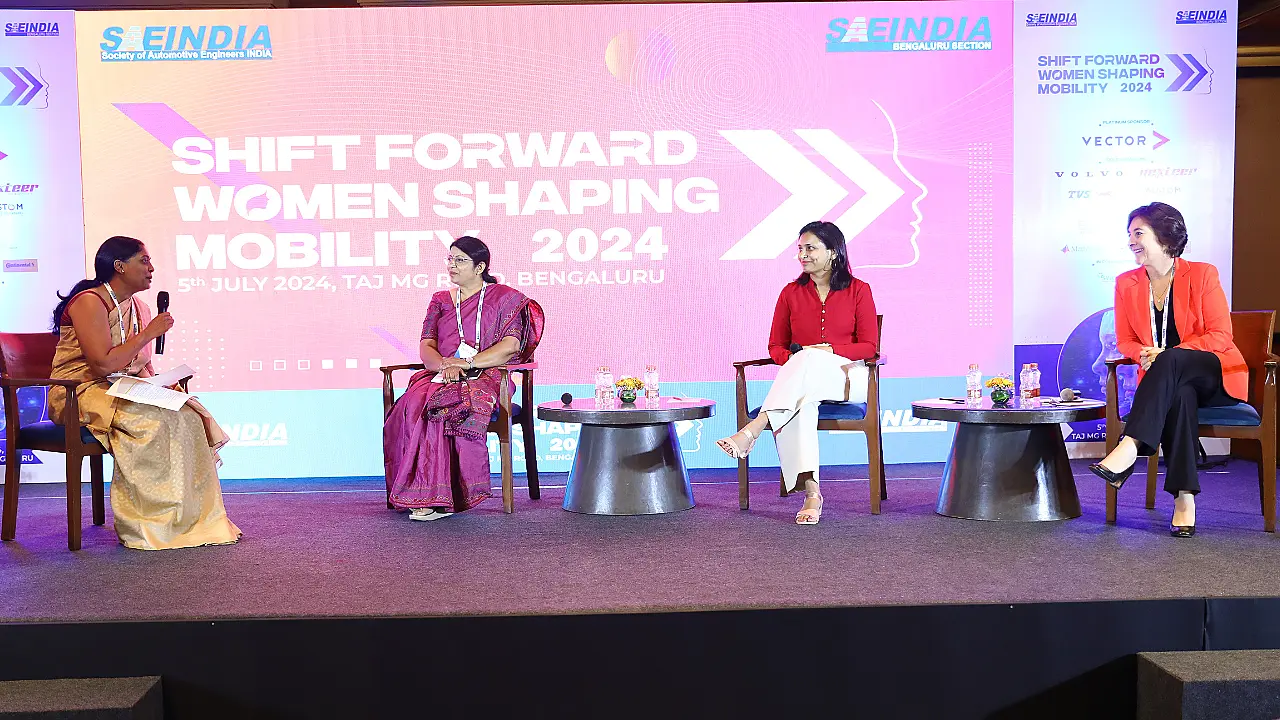
Participation at the panel discussion on: The Future of Innovation: Global Technical Centres in India, moderated by Rashmi Rao, Principal Industry Manager - Automotive at MathWorks, was participated by Usha Holalkere, Executive Director at Nexteer Automotive; Bindu Santa Phillip, VP Technology at Bosch Global Software Technologies India; and Armelle Guerin, VP Software & ADAS and DEI Global Business Leader at RNTBCI.
Holalkere encouraged participants to be resilient, believe in themselves, network effectively, and make a name for themselves. Phillip urged them to find their passion, pursue it relentlessly, and challenge the status quo vigorously. Additionally, she advised them to distance themselves from negativity and detractors.
Guerin emphasised the importance of male allies in advancing women in the automotive industry, stating, 'Without the men, we won't be able to have more women in the automotive industry. So, we need to really celebrate those who already understand this.' She stressed the importance of authenticity, saying, 'You have to be happy with what you do, otherwise you won't do it well. Also, don't forget to be business agile, as business acumen is very important.'
Shweta Dhadiwal Baid, Digital Media Consultant for the Society of Women Engineers (SWE) India, spoke about SWE India's unique activities, while Dr Srividhya Kannan, Chief Manager of Continental, and Padmini Madhusudan, Technical Architect for AD/ADAS KPIT Technologies, participated in the second Panel Discussion on AI—a game changer in mobility.
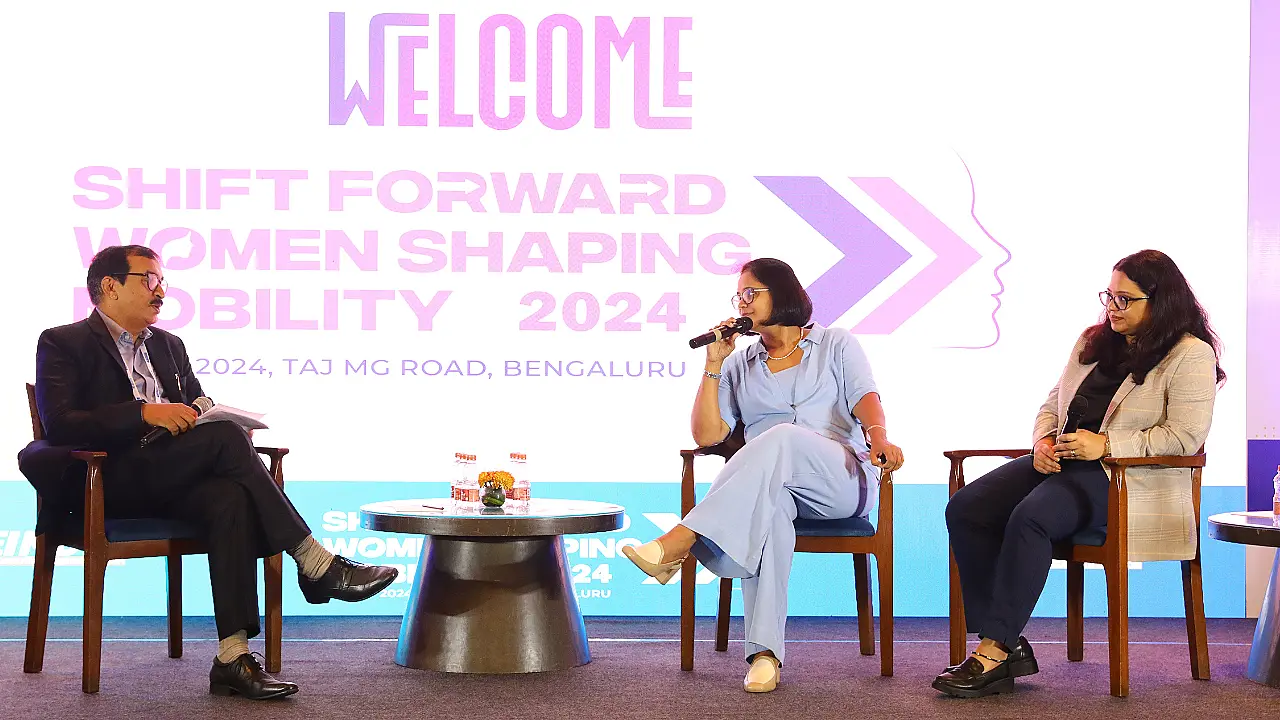
The third-panel discussion, titled 'Start-up Stories: Making the Next Big Move in Mobility,' featured Sapna Ahuja, CTO of MapmyIndia and Vishakha Bhagat-Datey, Lead at CampX India Hub, Volvo Group, moderated by Vasudeva Upadhyaya, Head of Projects - Asia at Elektrobit. Ahuja delved into the journeys and inspirations behind MapmyIndia's success and revealed the company's strategy behind its foray into the global market, which is comprised of content and logical layers. First, it will look at SE Asia, theMiddle East, Africa, and Latin America. While India has its set of challenges, globally, it will be in managing multiple languages and collaborations. It will be looking at in-built AI and ML models, she added.
Bhagat spoke about how CampX India Hub identified the talent from the country and nurtured them to become a techno-commercial business proposition. Globally, CampX is running about 100 proof-of-value projects, including 27 from India. She said about 30% of the projects from India are making it to the launch. One of the notable projects is a seat for truck drivers that is developed using digital mannequins. She added that the organisation looks at products, processes and business innovations.
Industry-Academia Collaboration
At another Fireside Chat, Pamela Tikku, Vice President & Head ofAuto Group Public Affairs at Mahindra Group, had an engaging conversation with Pradeep Chandrasekaran, Associate Director - Vehicle Engineering, OLA Electric Technologies, on Safety and Regulations in the mobility sector in India, Tikku stressed the crucial role of collaboration between industry and academia. She noted that, unlike academic institutions outside India, where clear targets for delivering research projects and papers exist, this focus often needs to be improved in India. Indian academic institutes produce some of the best minds and can contribute significantly. However, a mechanism to enable effective collaboration between industry and academia is missing, which is essential for both sectors.
Addressing how the automotive industry can work together to tackle common challenges while driving innovation, she highlighted the inherent competition between companies as a key driver of innovation. She explained that national and international goals also play a role. 'As an industry, we have a common minimum programme. All manufacturers must align their products and policies with national goals, which ultimately align with international objectives,' she said. This alignment leads OEMs to work on common platforms and technologies, fostering cooperation and competition.
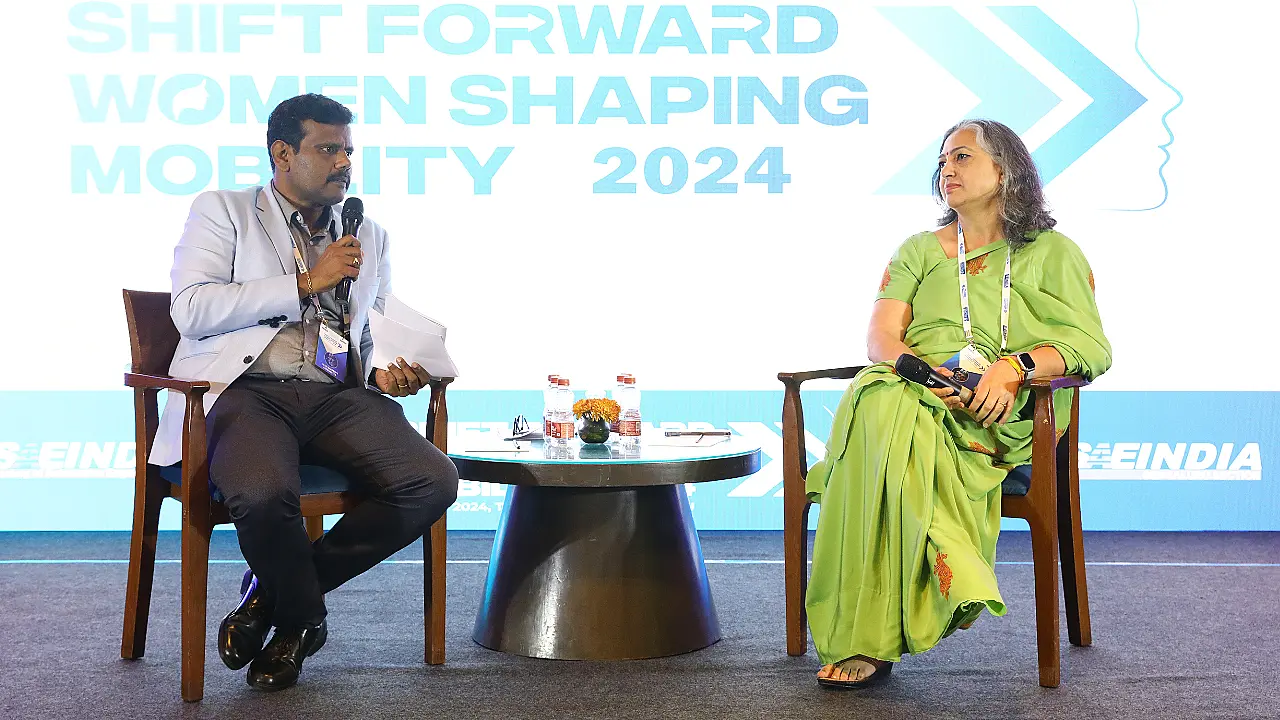
Tikku cited the implementation of CNG in the National Capital Region (NCR) for commercial vehicles as an example of effective government-industry collaboration. CNG was made mandatory for public transport vehicles in NCR following a Supreme Court order in July 1998, and the implementation began in the early part of the 2000s. This initiative demonstrated the impact of government mandates and led to a formalised approach to emission and safety roadmaps. The structured BS-2/3/4 and BS6 regulations provided a clear framework for the industry's development plans. 'It was a well-thought-out and agreed-upon plan between the government and industry, guiding product development and other initiatives,' she noted.
In her advice to aspirants, Tikku encouraged women not to view their positions as advantageous while letting gender define their limitations. She emphasised the importance of accepting challenges while analysing societal issues and proving one's capabilities. 'Prove yourself and prove to others that your delivery is good,' she advised.
Operational Excellence
Delivering the third Keynote on Operational Excellence in Supply Chain, Pratibha Nath - Director of Supply Chain - India, Member of the Board and Diversity & Inclusion Champion, Alstom, said operational excellence takes place when there is a good balance between optimised people, processes and tools. The culture and leadership should be committed to finding the best ways to ensure safety, quality, yield and productivity.
Delivering a special address, Murrali Thalor, Managing Editor of Mobility Outlook, spoke about 'Empowering Women to Lead and Innovate in the Mobility Sector.'
Highlighting women's crucial role in shaping the future of mobility, he emphasised that improving women's employability in India necessitates addressing several challenges, including access to education, skill development, and workplace inclusivity. Efforts to enhance digital skills and provide vocational training are essential in bridging this gap and increasing the overall employability of women across the country.
Also Read:
SAE Bangalore’s Conference To Help Women Find Mentors For Career Growth